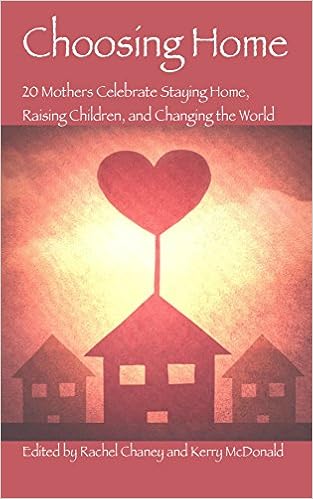When I was a child, I remember counting the days until the end of the school year. Once June hit, I would mark off on the calendar the field trip day to a museum and "field day, with its tug-of-war and potato sack races. Those days wouldn't "count" in my total remaining days of the school year because they wouldn't actually be school days. They would be fun. And I loved school! Yet, today I wonder: If I loved school so much, why was I always so eager for it to end?
My Instagram feed fills this time of year with photos announcing the last day of school, for both homeschoolers and conventional schoolers alike. Often, these photos are accompanied by a "first day of school" photo from the fall, showing the beginning and the end. I get it. Childhood moves so quickly that we crave tangible markers of the passage of time, visible measures of growth.
These photos are vivid reminders of how different unschooling is from standard schooling or school-at-home. With unschooling, there is no beginning and end, no start and stop. I can't even imagine having a "last day of the school year" photo for my kids. What would it look like? The last day of what?
For unschoolers, learning is woven into the continuous, year-round, natural process of living. It is not separated into certain subject silos or reserved for a specified number of hours or days. It is not orchestrated by a linear, sequential curriculum determining how, when, and in what ways a human will learn. It is not pre-determined. It is not forced.
In How Children Fail, John Holt describes how children become conditioned to be taught, to be coerced into learning, to be prodded with bribes and punishments. Children learn that this is what it means to be educated, that others hold the puppet strings. They learn that learning is not within themselves but at the command of others. Holt writes:
"This idea that children won't learn without outside rewards and penalties, or in the debased jargon of the behaviorists, 'positive and negative reinforcements,' usually becomes a self-fulfilling prophecy. If we treat children long enough as if that were true, they will come to believe it is true. So many people have said to me, 'If we didn't make children do things, they wouldn't do anything.' Even worse, they say, 'If I weren't made to do things, I wouldn't do anything.'
It is the creed of a slave." [emphasis in original]
My kids read, write, do math, and explore all sorts of topics all year long--not because we tell them to read, write, calculate, and explore, but because they are genuinely excited about learning. They have not been trained otherwise. They read books that they love, ask daily if they can do Prodigy Math on the computer because it is so much fun, write blog posts or scripts or emails or stories because they decide to do so--not because they are cajoled into it. They have no reason to think that math is only something one does during certain seasons or as an "enrichment" activity. They can't imagine a forced writing or reading assignment. They write and read because they want to, because it's useful and enjoyable. They have no mental model to think that reading, writing, and arithmetic are somehow onerous subjects to be avoided, or only reserved for certain times and places.
My 11-year-old daughter has been taking a rigorous fiction writing class through Outschool.com, an online learning platform for kids. The class is taught by an award-winning fiction writer and incorporates live group discussions with her classmates around the world and ongoing writing expectations and feedback. It is quite a commitment, but it is something that she is passionate about, that she is driving. As an unschooling parent, I connected her to Outschool as a possible resource, as well as other local writing classes, and she found that this online class was the best fit for her writing goals. She writes all the time, enthusiastically prepares for her class, and connects with many of her classmates around the globe through Google Hangouts. She also knows that if this course no longer meets her needs, she can leave. So far, she has no interest in leaving and signed on for a three-month summer extension of the course. I found it interesting that some of her other summer classmates are homeschoolers.
Non-coercive, self-directed, interest-driven, adult-facilitated learning has no first day and last day. Unschooling is interconnected with daily life, and authentic learning isn't tied to an arbitrary calendar. There is no ending my children are anticipating this month. If there was something they didn't want to be doing, they wouldn't be doing it.
Summertime rhythms will be similar to springtime ones. They will continue to play with friends and pursue passions. Tomorrow will look much like yesterday and next week. We'll do just as much swimming in September as we do in June. Reading, writing, arithmetic--and so much more--will be explored, freely and joyfully. Photos or not.
























No comments:
Post a Comment
Note: Only a member of this blog may post a comment.